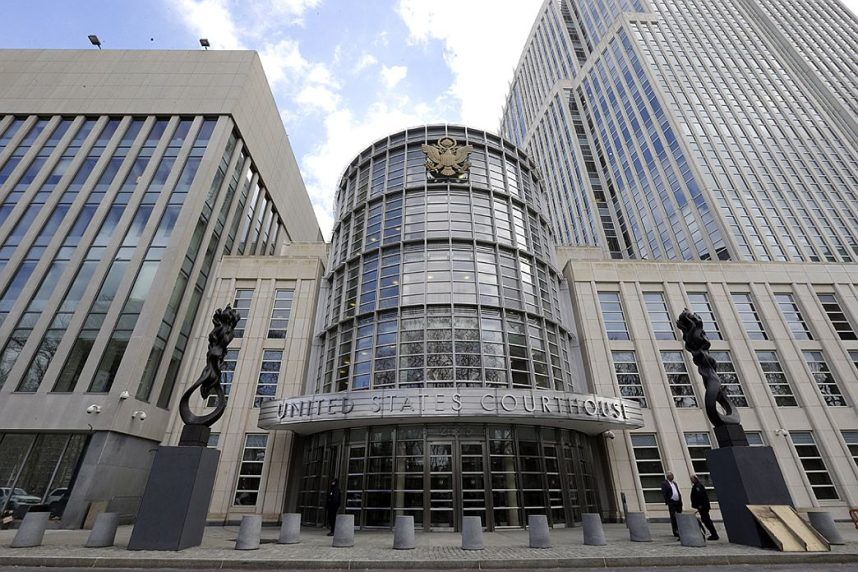Posted on: September 20, 2023, 07:41h.
Last updated on: September 20, 2023, 07:41h.
An investment banker previously employed by Deutsche Bank is facing severe legal consequences after being caught in a fraudulent cryptocurrency-linked investment fund. Rashawn Russell used stolen funds to fuel his gambling addiction and maintain his deceptive facade, leading to potential imprisonment and a significant financial penalty.

The case gained significant attention in April, and Russell recently appeared in court, where he pleaded guilty to charges of running a Ponzi scheme and investment scam while working for Deutsche Bank. He illicitly obtained over $1 million from clients, misusing the funds for personal activities, such as gambling and repaying previous investors.
Initially, Russell denied the allegations, but as evidence mounted against him, he ultimately confessed when faced with the charges in court.
It is worth noting that the Department of Justice notice does not explicitly mention Russell’s connection to Deutsche Bank. However, his LinkedIn profile suggests that he was employed by the financial institution during the period of fraudulent activities.
Lies and Deceit
In April, prosecutors charged Russell with duping investors into believing they would receive guaranteed returns. He enticed them to invest in the R3 Crypto Fund, a digital investment fund, but instead of making actual investments, he used the funds for personal purposes.
Russell had clients send him money through cryptocurrency and used fabricated documents to create the illusion of high liquidity within the fund. Instead of fulfilling his clients’ expectations, he embezzled more than $1.5 million from 29 individuals between November 2020 and July 2022.
Additionally, he was allegedly involved in an identity theft scheme, fraudulently obtaining more than 15 credit cards and “other access devices” from September 2021 to June of the following year.
Russell is now facing criminal charges and could be sentenced to up to 30 years in prison. He will also be required to repay all the stolen funds and address a separate lawsuit filed by the Commodity Futures Trading Commission (CFTC).
Deutsche Bank has not been implicated in any wrongdoing related to this case. The bank has cooperated willingly with law enforcement throughout the investigation, as stated in a previous statement.
Dedicated Plan to Defraud
Russell went to great lengths to conceive and execute his fraudulent scheme. He consistently advocated for the fund as a valuable investment opportunity while continuously making baseless claims at each stage of the process.
When addressing investors, he disclosed that the fund adhered to a three-month investment cycle and could not accept new offers during each cycle’s initiation. However, he reassured investors that once a cycle ended, they could expect returns or reinvest their capital into the subsequent cycle.
However, this “cycle” system was merely designed to create an illusion of procedural integrity and transparency. In reality, each investor received conflicting information regarding the fund’s operations.
Furthermore, Russell deceived investors by presenting fake evidence of income generated from the fund. The CFTC’s indictment highlighted several instances where Russell showcased a screenshot depicting a startled investor witnessing a sudden influx of hundreds of thousands of dollars in their bank account.
During this period, Russell’s combined balance in the trading accounts was less than $60,000, with $50,000 of that amount originating from a single investor.
Whenever investors questioned payouts, Russell fabricated numerous excuses, such as losing his phone, resolving issues with accountants, or having frozen accounts due to large financial transactions.
All these excuses were fabricated, and now Russell will likely pay the price with imprisonment. Despite facing restitution requirements, it is doubtful that he will be able to repay the debt in full.


